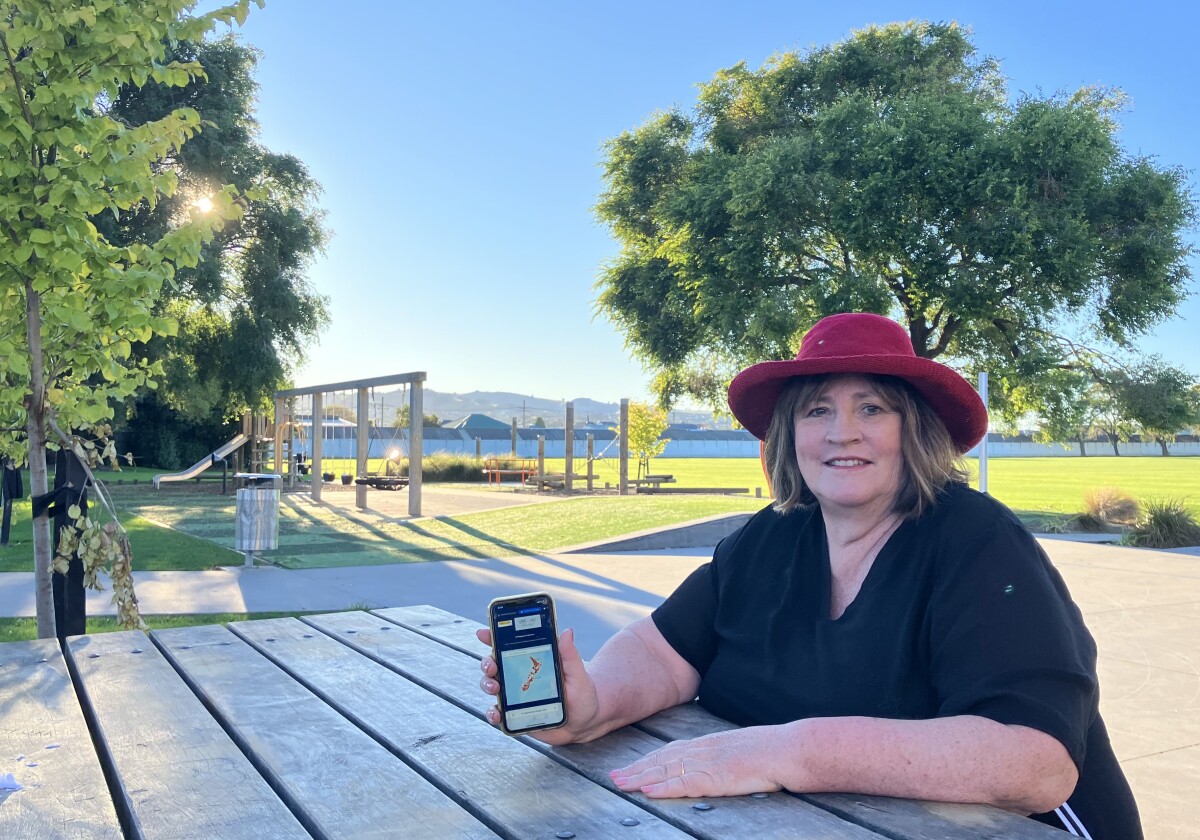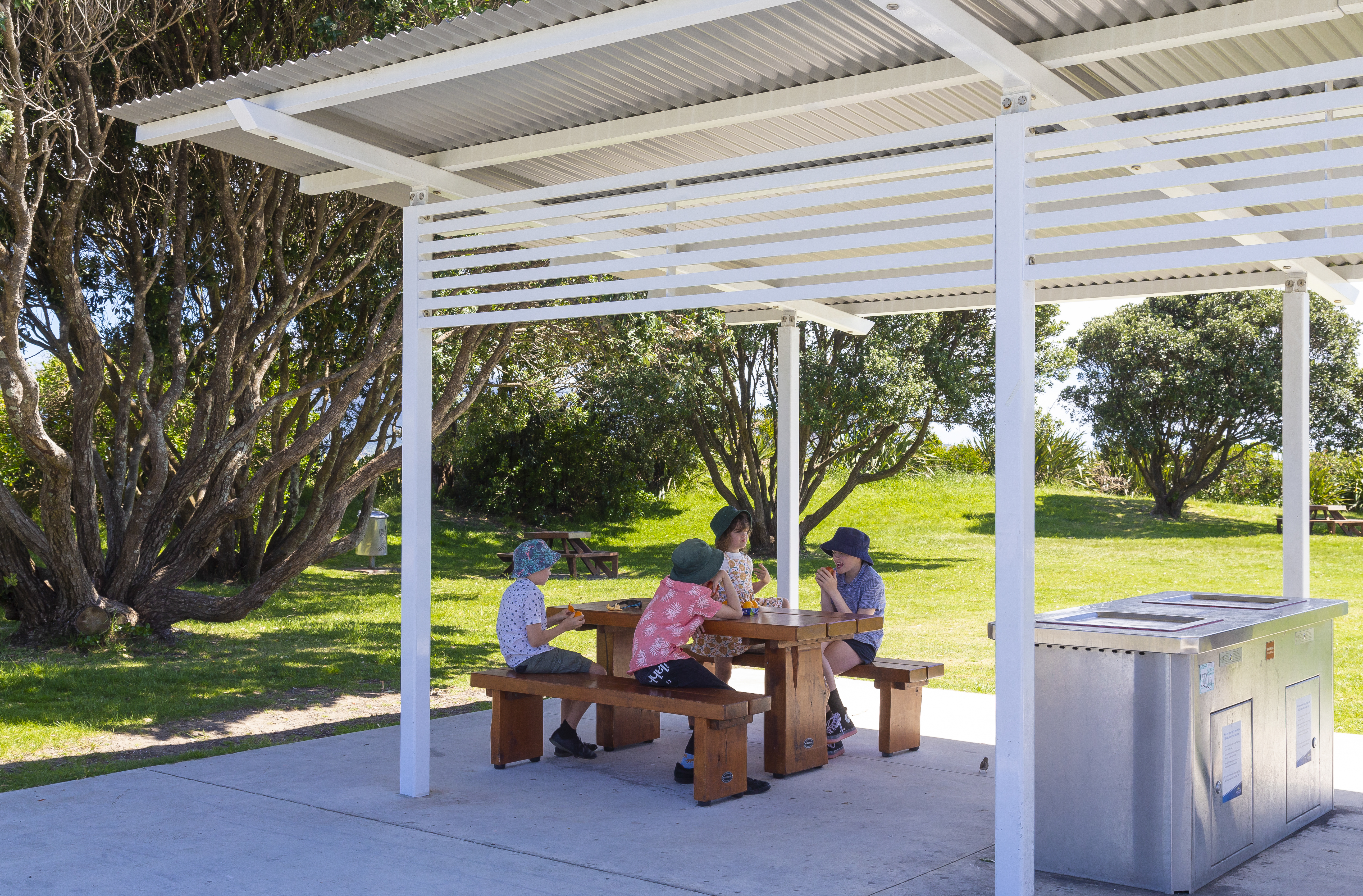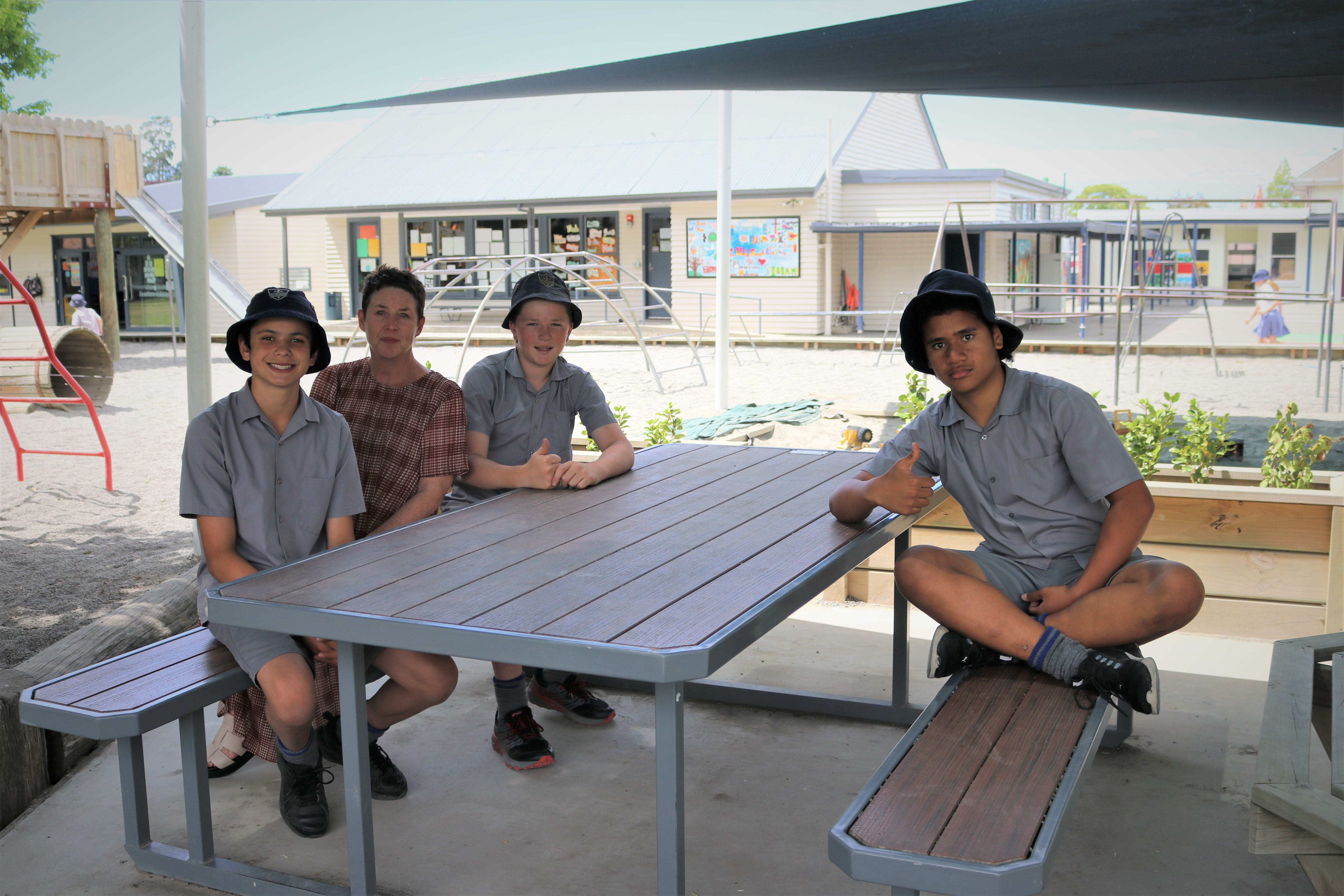News and Updates
Here you can find SunSmart news and updates
App makes playground selection a walk in the park
April 2025
Just in time for the school holidays, a University of Otago – Ōtākou Whakaihu Waka academic has released a web app to help take the guesswork out of a trip to the playground.
NZ Playground Explorer, funded by Lottery Health, Cancer Society of New Zealand, and the University of Otago, provides equipment and facility information for more than 3550 playgrounds across the motu.
Created by Dr Bronwen McNoe, of the Department of Preventive and Social Medicine, the app contains filterable detailed information and photographs of every council managed playground in Aotearoa New Zealand.
“I thought this would be really valuable for parents and caregivers. The app can tell you which playgrounds offer good shade, as well as a wealth of details on play equipment such as pump tracks and flying foxes, and amenities such as public toilets and barbeque facilities.
“A great feature is that all this information is filterable – if your child loves diggers, you can easily find all the playgrounds in New Zealand that feature diggers,” she says.
Along with helping parents find a playground their children will enjoy, the app enables them to find one which is also good for their health.
Skin cancer is a significant issue in Aotearoa New Zealand, with 100,000 cases annually and treatment costs exceeding $400 million.
“This largely preventable disease is almost entirely caused by excessive sun exposure, with childhood exposure being a critical risk factor.
“Ensuring shade in areas where children live, learn, and play is crucial for their protection from the sun. By making our environments SunSmart, it’s easier for parents to keep their children safe. However, parents need to know which playgrounds offer adequate shade for their children,” Dr McNoe says.
Emma Shields, a Cancer Society spokesperson, says the organisation is delighted to be part of this collaboration.
“This is a revolutionary new app which could help communities across New Zealand to be more SunSmart by helping them identify where they can find shade in playgrounds.
“Even though summer is over, the UV can still be strong enough to burn until the end of April. This app is launching just in time for the Easter school holidays when it’s still important to Slip, Slop, Slap and Wrap when enjoying the outdoors.”
This means slipping on clothes to cover as much skin as possible; slipping into shade, especially during the middle of the day; slopping on sunscreen of at least SPF 30 every two hours; slapping on a wide-brimmed hat; and wrapping on close-fitting, sun-protective sunglasses.
Dr McNoe utilised data from an academic project assessing shade in public outdoor spaces to produce the resource.
She wanted to make the extensive information she gathered easily accessible to the public to help them find well shaded playgrounds.
She also wants to encourage councils to think about shade when renovating or creating playgrounds.
“Councils are responsible for many of the outdoor recreational areas we use every day – they need to systematically consider the inclusion of shade in relation to these areas. That might be trees, gazebos or shade sails depending on the type of space it is.
“There is a feedback mechanism in the app where you can share your opinions on shade. This feedback can then be shared with councils.”
Dr McNoe hopes to expand the app to include outdoor swimming pools, and skateparks in the future.
NZ Playground Explorer:

Cancer Society keen to help councils with shade planning
March 2022
The health and wellbeing of our tamariki is a priority for whānau. That’s why it matters to communities across the motu that all families have access to good quality shade in public spaces.
Local governments have a key role in increasing shade in public spaces. The Cancer Society can help support you to prioritise shade in your planning policies and together we can reduce the rate of skin cancer in our communities.
Why we need shade
Skin cancer is the most commonly diagnosed cancer in Aotearoa New Zealand, and we have one of the highest rates of melanoma in the world. Fortunately, almost all skin cancers can be prevented by minimising over exposure to ultraviolet (UV) radiation from the sun.
Good quality shade can reduce UV radiation exposure by up to 75%. We all know to be Sunsmart we need to Slip, Slop, Slap and Wrap. However, installing shade in public spaces, parks, play spaces and recreation areas provides an equitable solution for all of us to be SunSmart wherever we work, live and play; and the great thing about having shade available is that it doesn’t require prior planning for us to be Sunsmart. Research has shown that once shade is provided in our environment people will use it, often using the space for longer than they would have otherwise.
In addition to protection from UV radiation, installing shade has lots of other benefits. Quality shade structures can provide shelter from the rain, making outdoor public spaces comfortable and useable year-round. They also enhance the aesthetic appeal of an area and natural shade, like trees, also achieve environmental objectives.
As individuals we embrace SunSmart behaviours including the use of sun protective clothing, hats, sunglasses, and sunscreen to reduce our risk of skin damage. However, the benefit of investing in shade in our outdoor spaces is that it is a form of sun protection that is accessible by all and will provide protection not only today but for years to come.
Shade planning
The Cancer Society is encouraging councils to include shade in their planning policies to help reduce communities UV exposure and encourage personal sun protection.
When redeveloping public spaces or planning for new public recreational areas, councils should also consider that the Local Government Act highlights the need for healthy and safe environments that enhance the well-being of their communities and include shade in their sustainable developmental approach.
Built Shade
Permanent structural shade can provide predictable areas of protection from UV radiation and can also be designed so it protects from weather such as rain and wind making public spaces comfortable for use year-round.
Natural Shade
Natural shade enhances the quality of the environment while making a more attractive place to live. Planting shade trees is an investment in the needs of future generations, as they will continue to grow and provide protection for many years to come.
How the Cancer Society can help
The Cancer Society believes all communities deserve shade in the places they live, learn, work and play. Councils are in a unique position to be able to provide shade for recreation areas and outdoor workplaces.
The Cancer Society wants to support councils in making good shade planning decisions. Free resources for councils and including shade planning are available on our SunSmart website. Find out more at www.sunsmart.org.nz

Teaching SunSmart behaviours in Aotearoa New Zealand
25 January 2022
The school holidays are coming to an end, and throughout Aotearoa New Zealand, children are returning to classrooms for another busy school year. However, some of the best weather of the year is still around the corner, and children will be spending many hours outside the classroom when ultraviolet (UV) radiation levels are at their peak. In fact, from the beginning of September through to April, UV levels are highest between 10am and 4pm.
The Cancer Society of New Zealand provides the SunSmart Schools programme to support students, staff and school communities to remain protected from over-exposure to ultraviolet radiation rays during outdoor activities.
"Skin cancer is the most common cancer in Aotearoa New Zealand," says Cancer Society Medical Director Dr Kate Gregory. "Fortunately, we now know that there are things we can do to lower our risk. It is important that we embed SunSmart practices in our lives from a very young age, as UV damage accumulates over time. Up to the age of 18 is a key time for making sure that our children and families are protected."
The Cancer Society believes schools are the perfect place to provide a SunSmart environment, educate students about sun protection behaviours and reduce the risk of skin cancer by being SunSmart. That is why the Cancer Society actively works with early childhood centres, primary and secondary schools to support teachers and school communities to get the SunSmart message across.
St Joseph's in Ashburton is one of the 500 SunSmart accredited schools in Aotearoa New Zealand, where shade is an excellent option for sun protection. Their students enjoy using shade areas for several purposes, including Education Outside The Classroom, kapa haka and school assemblies, as well as eating lunch and playing.
Principal Cath Blacklow says, "Providing shade and also a well-ventilated space is really important for all our students and parents who attend our assemblies throughout summer. We utilise the "stadium" area with its large shade sail for a wide variety of events. We couldn't be without it."
"Given the rates of skin cancer, learning SunSmart behaviours is essential for all children in Aotearoa," says Cancer Society Chief Executive Lucy Elwood. "It is the behaviours that they learn now that will help keep them safe from harmful UV into adulthood. We have developed some fantastic resources for teachers to use in the classroom and we hope more schools will start the new school year SunSmart by signing up to our programme."
The SunSmart Schools programme is free to join. A SunSmart module is free for all educators. If your school becomes a SunSmart School, the Cancer Society offers an accreditation certificate and a sign for the school building or gate. Some divisions offer SunSmart hats, 1-litre of sunscreen, and seedling trees. More information, including teaching resources and SunSmart sample policies, is available at www.sunsmart.org.nz/sunsmart-schools
